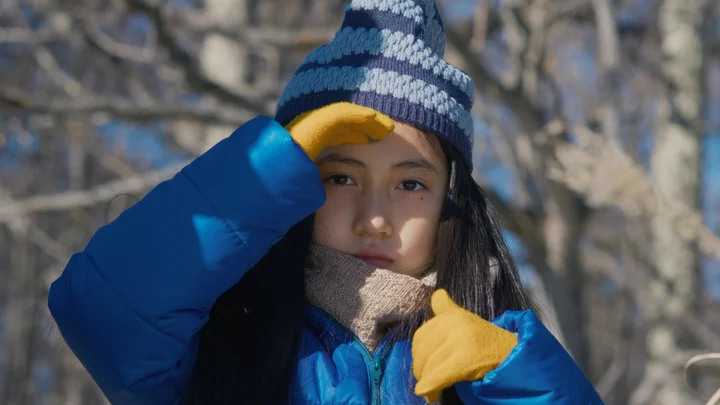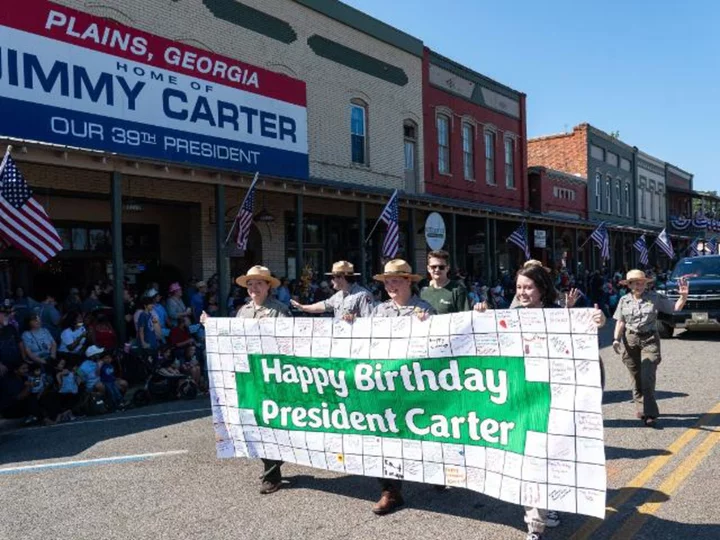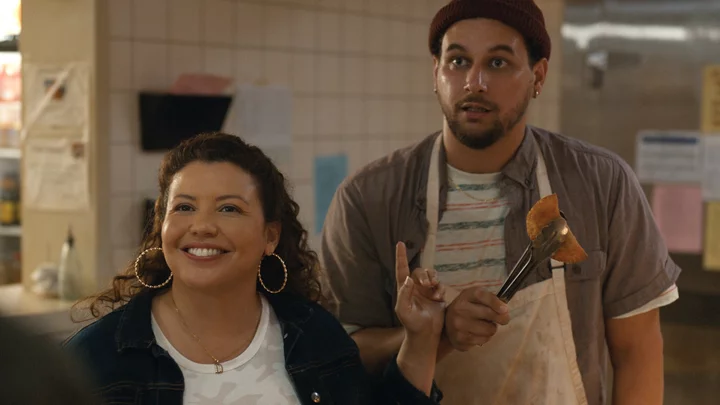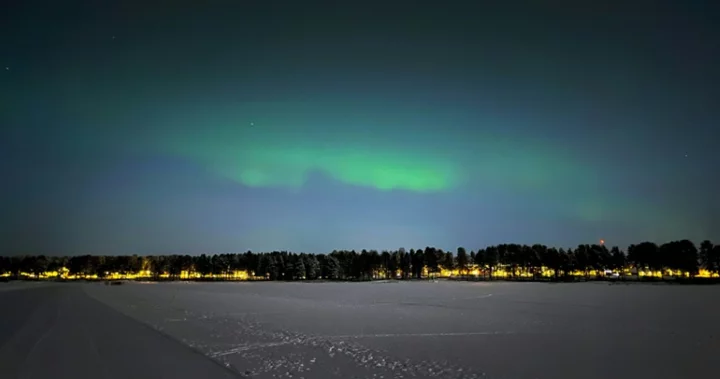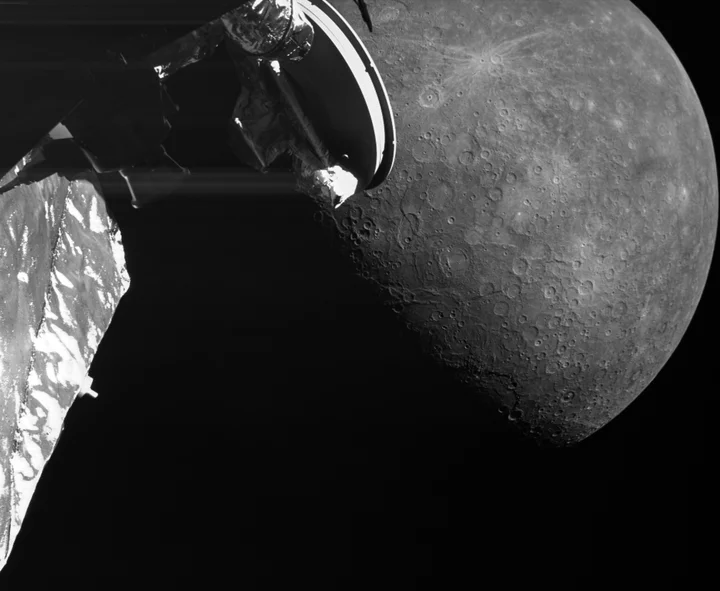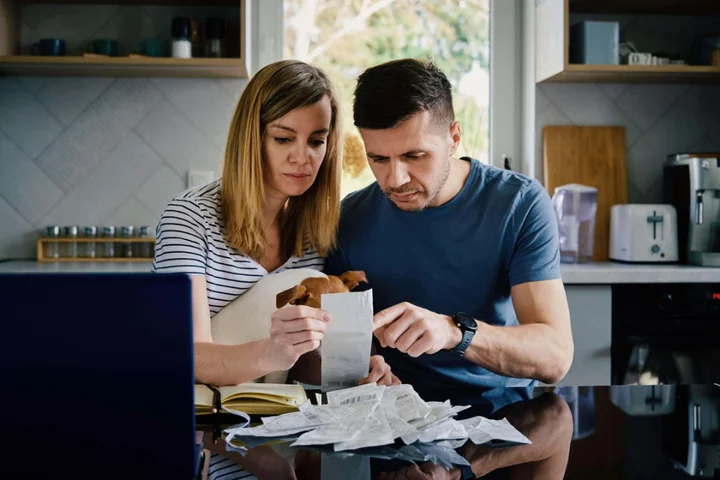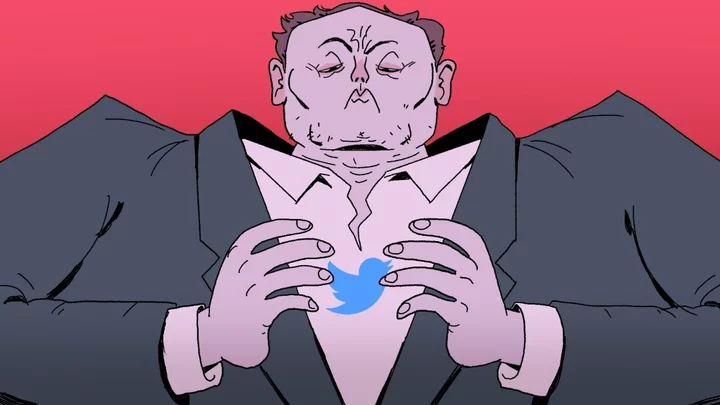A group of young Israelis in Cyprus sang loudly, laughed and shouted in joy as a rainbow appeared -- but each of them was there because they had suffered overwhelming trauma.
"We look happy, but inside we are... not," said Tamar, 23, a survivor of the October 7 Hamas attacks, pressing her fingertips to her heart as she struggled to find the right words.
Telling her story was too difficult, she said, "because other people, they can't understand".
Tamar, a marketing professional who asked not to be named in full, and the other Israelis were on the Mediterranean island as part of a programme to help them heal after the horrors they endured.
They are survivors of the Hamas attack on the Supernova music festival where militants killed more than 270 people, among the overall death toll of 1,200 reported by Israeli officials.
The festival-goers were brought to Cyprus by Yoni Kahana, 35, the owner of the Secret Forest resort in the mountains above Paphos, who set up the free treatment programme with the help of IsraAID, a major Israeli NGO.
"The biggest advantage is the silence," Tal Nehushtai, 29, told AFP. "Here, no one is talking about the war, it is pure healing at the highest level."
The tranquillity of the Cyprus mountains is in stark contrast to Gaza, just 400 kilometres (250 miles) away, where Israel's retaliation, aimed at destroying Hamas, has killed more than 11,500 people, mostly civilians, according to the Hamas government.
While the war rages on in Gaza, the young Israelis have tried to put their own trauma behind them, even if only briefly.
They were aboard a bus, sharing moments of joy, and headed to a remote pier jutting into the sea on a rainy and windy autumn day.
Jumping off into the choppy waters would be a symbolic leap of faith and another small step on their path to recovery.
- 'We need it' -
Each group of 50 survivors stays at the resort for five days, and Kahana said that 1,400 had signed up so far, with around 200 having already passed through the programme.
They are offered one-to-one and group therapy sessions with professionals, alongside alternative treatments such as meditation inspired by Jewish tradition, yoga, and arts and crafts.
Participants also have access to addiction treatment.
Therapists told AFP that many of the festival goers were under the influence of drugs during the attack, and some were now struggling with dependency on narcotics.
For many of the survivors, being among people who shared their experiences was a significant help.
On Monday night, the latest group had organised a trance music rave in the hotel basement, partying into the early hours of the morning, as they had on October 7.
"We love to dance... to feel this bliss, love, happiness, to celebrate life," said Lior Auvgang, 26, a tall and boisterous man with a bright ginger beard.
On the day of the attack, he said, "it all was cut in the middle. So we need it."
Auvgang believes he was among the first to realise the festival was under attack.
While taking a bathroom break, he saw huge numbers of rockets arcing through the morning sky, his drug-altered mind initially in awe at the display.
Auvgang, a former army combat medic, said he spent more than two hours helping to treat the wounded.
Then Hamas gunmen nearby forced him to flee into the woods to hide for seven hours, during which he sent his mother a goodbye message.
He said two of his friends were killed and another two abducted to Gaza.
- Panic attacks -
While a handful were willing, even determined, to talk, others were still too traumatised, wandering through the hotel clutching blankets around their shoulders.
Conversations and walks in the hotel were frequently interrupted by long, emotional hugs.
Nehushtai, a farmer and aspiring tattoo artist, was one of those most keen to speak.
He described a frantic scramble through the open terrain of southern Israel, evading Hamas roadblocks, being shot at, hiding in concrete tubes and eventually finding himself cowering in a small grove of orange trees for six hours.
The bone-dry leaf litter rustled at the slightest movement, he told AFP, and he and his friends were convinced they would soon be found and killed.
When Hamas militants stumbled upon their car and began to roam between the trees, he too believed death was imminent.
"We saw their legs, we saw their faces," he said, "if I move my head they hear us, so I only follow them with my eyes".
That the fighters didn't spot them, he said, "was the biggest miracle".
Despite their horrific experiences, many of the survivors simply returned to normal life afterwards.
Tamar told AFP she didn't leave her home, eat or sleep for a week afterwards, but then reported for duty in the air defence reserve, helping operate the Iron Dome missile defence system that protects Israel from Hamas rockets.
It helped her feel back in control, she said, after the helplessness of fleeing unarmed from Hamas.
She said she threw herself into rifle drills, but found the gunshots triggered panic attacks.
The Cyprus sessions are only the earliest part in a complex and prolonged healing process, several of the therapists involved told AFP, and the groups will receive more help back in Israel.
Yet Auvgang said some progress was there to see already.
"The first day was a little bit hard. I was feeling like a rock, like I was closed," he said. "Now we've got better... everyone is together."
dcp/fz/smw


